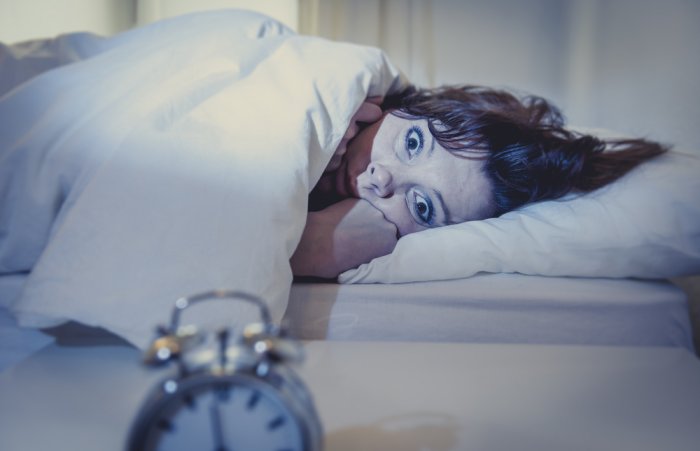

When sleep deprivation has occurred there’s generally a sharp rebound of slow-wave sleep, which suggests that there’s a need for slow-wave sleep. This is a phenomenon known as sleep inertia. After being awoken, the person will generally feel quite groggy, and cognitive tests that have been administered after being awoken from the third stage show that for up to half an hour or so, and when compared to awakenings from the other stages, mental performance is moderately impaired. In stage three we see the greatest arousal thresholds, such as difficulty in awakening, and so on. Slow-wave sleep is generally referred to as deep sleep, and is comprised of the deepest stage of NREM. As humans get older they spend less time in slow wave deep sleep and more time in Stage 2 sleep. Some studies have demonstrated that very loud noises, sometimes over 100 decibels, will not awaken some during SWS. A sleeper in SWS is often difficult to awaken. During SWS, the EEG shows a much slower frequency with high amplitude signals (delta waves). These stages of sleep are also called ‘Slow Wave Sleep’ (SWS), or delta sleep. Stage 3 and Stage 4 sleep of the sleep cycle are progressively deeper stages of sleep. Stage 2 sleep is characterized by ‘saw tooth waves’ and sleep spindles. During Stage 2 sleep, the sleeper is less able to be awakened. Stage 2 usually follow Stage 1 and represents deeper sleep. There is muscle tone present in the skeletal muscles. The EEG brain frequency is slightly slower than during wake time. Stage 1 of the sleep cycle is the lightest stage of sleep. Generally, brainwave frequencies and amplitudes from an electroencephelogram (EEG) are used to differentiate the different stages of sleep, along with other biologic rhythms including eye movements (EOG) and muscle movements (EMG). Stage 1,2,3, and 4, are categorized as ‘non-REM sleep’, and the fifth stage, is REM sleep. Scientists categorized the stages of sleep based on the characteristics of the brain and body during sleep. There are five stages of sleep during the sleep cycle.



 0 kommentar(er)
0 kommentar(er)
